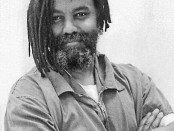

Mumia Abu-Jamal
This slightly edited commentary from April 24 by political prisoner Mumia Abu-Jamal is available at prisonradio.org/media/audio/mumia.


Mumia Abu-Jamal
By Mumia Abu-Jamal
I remember in [State Correctional Institute] Huntington and even in [SCI] Green. You know, when I was alone with a [guard] talking man-to-man, the guy said: “Listen, I’m a peon. You know, something happens here, man, they throw me to the dogs.” And I’m like, Damn! Did he just say that? Yeah!
These guys, they know that. But they’re forbidden from really saying that, other than when no one can hear. They believe in the propaganda because it’s profitable to do so. It’s in their economic benefit. Right? But, like a few days ago, I was listening in on C-SPAN. And a guy called and he was a retiree who worked for the Department of Corrections for 30 years. And so, you know, now he’s getting a retirement check. And he kept talking about “us.” You know: “us” correctional officers. “We” need. “We” fight so hard, blah, blah. And I was like, Dude! He was a Black guy; he was in his 60s. And he’s no longer part of them. But in his mind, he’s still a part of them.
So I’m saying that was the diabolical genius of [President] William Jefferson Clinton. When they gave billions of dollars to the states to build prisons, they created a class of people who benefited economically in ways they could not have done otherwise — any way in the world, as a rule. And so they’re invested —right? — in this system of repression. You’re a guy; you’re in your 50s or 60s, you’re thinking about bringing your son in, and then bringing your grandson in, and having your wife come in and work as a nurse or food service provider. Something like that. Or as a guard.
Like here in Schuylkill County, these are depressed areas of [Pennsylvania’s] economy. But if you can get a job gettin’ this kind of loot, you’re on top of the hill. You may not be that way in Pittsburgh and Philadelphia. But if you think of these former mining communities like Green or this one, Schuylkill, you’re eating high on the hog. It feeds the system, this machine.
Because of economics and social movements now, you have more Black and Brown people involved in these repressive industries. But, you know, if you look at it like from space or from a high elevation, things are not getting better. They’re getting demonstrably worse.
Yes, that’s why I believe in movements because I’ve seen movements do things in society. And, you know, I always say movements transform consciousness, but they transform more than that. They transform history. And they transform our vision of the future.
I look at the world. And I have fears and hopes, quite frankly. Because this can go either way. It goes the way that people push. When people create movements, they create change. But if they sit back and wait for others to do something they know they should have done, you’re going the way of repression. It’s really that dialectical and that clear.
We get what you fight for. What you don’t fight for, you don’t get. It’s that real. So, I believe in movements. I believe in decarceration.
In its ongoing genocidal campaign against the Palestinian people, Israel used drones May 2 to…
Palestinian and regional factions condemned the Israel Occupation Forces’ attack today on the Al-Dameer (Conscience)…
A message for May Day: ‘Workers of the world unite, Palestine is our fight!’ International…
Africa is rising, the days of colonialism are finished: This is the call being echoed…
Several immigrant groups and their supporters rallied outside the federal courthouse in Philadelphia on May…
Thousands of construction workers and teachers in at least seven provinces throughout Panamá took to…